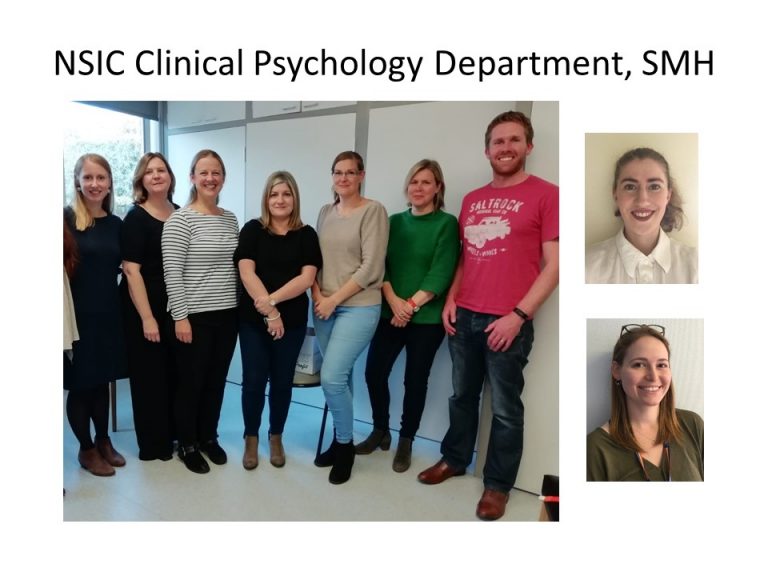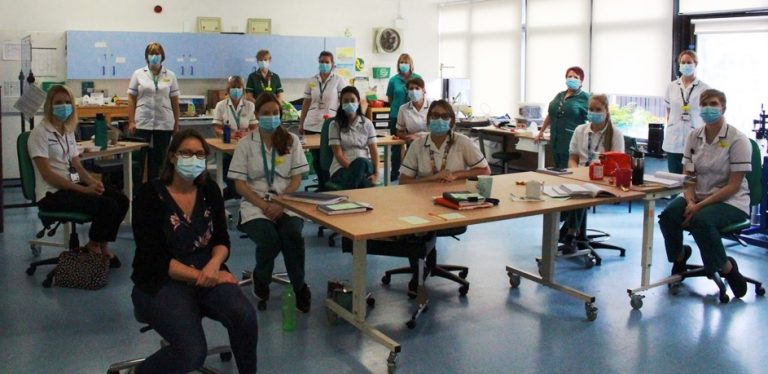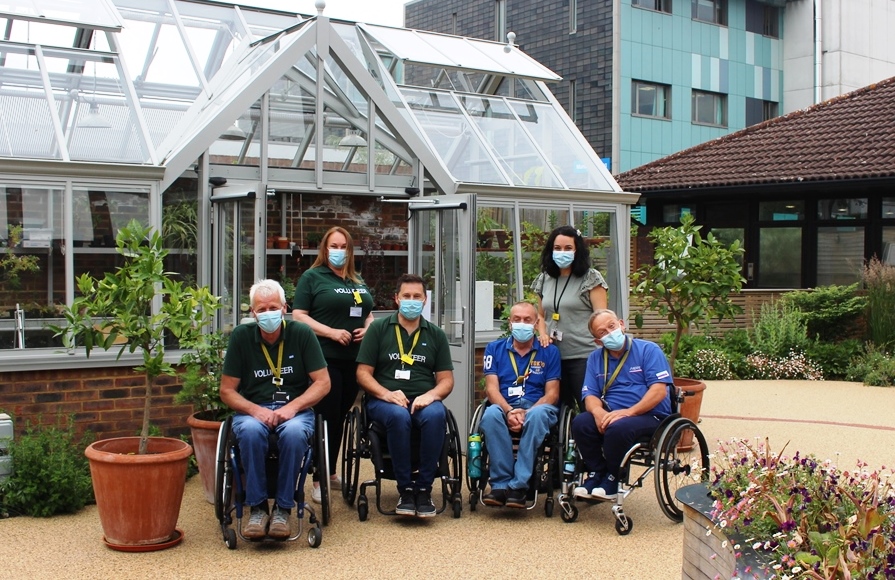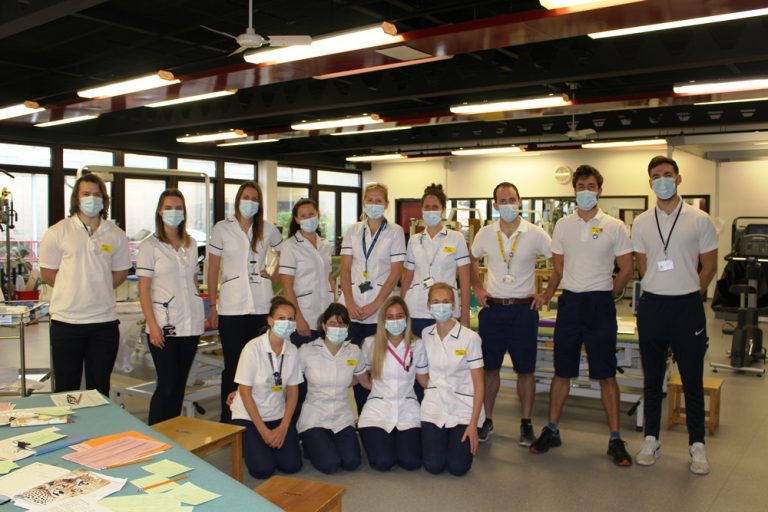Overview of teams and services
There is a range of key staff across the NSIC, forming a multi-disciplinary team,
and they all play a specific role in your care.
In each ward you will meet various kinds of professions. Each is responsible for different things.
Please ask what their profession involves if you would like to learn more.
They will all wear a badge supplied from the Trust identifying themselves.
Please inform a senior member of staff if you suspect anybody unauthorised in the wards.
Case Management Team
(based opposite the Café on the ground floor)
A case manager will be assigned to you at an early stage:
- They will ensure that your rehabilitation programme is being followed and works towards a safe, timely discharge
- They can liaise with community services such as the Spinal Injuries Association and the Department of Work and Pensions
- They can provide suitable links to sort out legal issues like Power of Attorney.
For more information about Case Management, click here
Children and Young Adults Service
- St Francis ward is the first specialist ward in the UK for assessment, treatment and rehabilitation of children and young people with SCI
- The ward promotes age appropriate independence to enable the child or young person to re-integrate back to their family and community
- The ward includes facilities and equipment to maximise independence
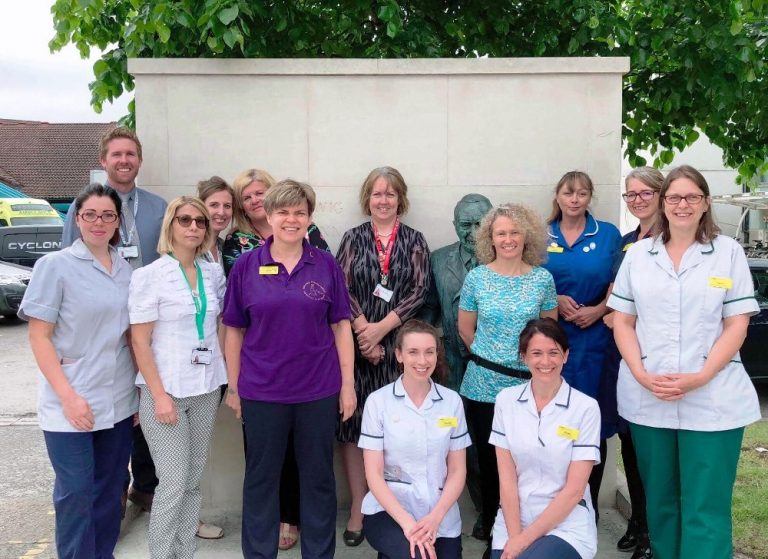
Clinical Psychologists
(First Floor, adjacent to St Andrew’s Ward)
- Psychological therapy helps support people in managing emotional problems and concerns, maintaining a sense of control over their life and finding ways of coping and adjusting for the future.
- A clinical psychologist also supports people with managing problems around chronic pain, concerns about relationships and sexuality, memory and other adjustment concerns.
- A patient can ask any member of NSIC staff to refer them to the team. They can also come along to our offices to speak to us directly.
For more information about clinical psychology, click here
Consultant
This is the senior doctor who is responsible for your medical care.
- Once your condition has been stabilised, the consultant will discuss with you (and your closest family member, if you wish), the nature of your injuries and the possibility of any recovery.
- Relatives are welcome to make an appointment to speak to the consultant if required.
For further information on the Consultant’s team, click here
Dietician
Dieticians with specialist knowledge in SCI are available to provide nutritional assessment, intervention and education to patients and their families.
Dietetic referral can be made via Healthcare Professionals or at the patient’s request.
You know yourself and your eating habits and history of weight and nutrition best, so if this is something you are concerned about, please ask for referral to the dietician.
- In the longer term, there is evidence of a tendency for a person with SCI to gain weight. So it is important always to balance physical activity with energy intake and monitor weight as you age.
- A young person’s dietary needs can vary greatly throughout rehabilitation. Good eating habits are encouraged during your child’s stay in St Francis Ward.

Family Counsellor
Counselling offers support for any family member.
- Relatives are welcome to talk to the counsellor about any issues, including feelings of sadness, anxiety, relationship difficulties, communication, guilt, anger and any other emotional concerns.
- Counselling is held in a confidential setting with a fully trained and experienced counsellor. Counselling can help give you some time and space to talk and also to help put your needs and problems into perspective.
- Leaflets about the service are displayed on all the wards and in the NSIC foyer. The counsellor can be contacted directly on the telephone number listed.
Key worker
- The key worker will be a member of your treating team.
- They will co-ordinate meetings between you and the rest of the multi-disciplinary team in respect of your care and rehabilitation.
Nursing Team
Nurses form the largest working group within the National Spinal Injuries Centre, and each area of care has its own group of specialist nurses.
- Their role is to support, teach and advocate for each patient, and they aim to give a holistic approach to each patient’s care needs.
- Nurses work within the multi-disciplinary team, alongside the patient, to enable the patient to become either verbally or physically independent.
Each ward has a Ward Manager, who has responsibility for the smooth running of their nursing team, and is the person to whom any concerns, comments or compliments should be addressed.
Matron
Matrons provide senior clinical leadership, specialist clinical knowledge and expertise in their related field.
- They drive qualitative, innovative, productive, safe evidence based nursing care which promotes best practice and best outcomes for patients.
- They support, develop and improve nursing practice, improve staff morale, resolve problems for patients and their relatives efficiently and effectively, ensure that the workforce levels and skill mix are safe and appropriate for the level of care required for the patients.
- They support and empower the ward based nurses to take on a wider range of appropriate clinical tasks as they become more skilled and knowledgeable to meet the variety of needs patients have.
If you have any concerns or questions about your care during your inpatient stay, the Matron can assist with problems if the ward staffs are unable to do so.
To learn more about the nursing roles involved in your care and rehabilitation, click here
Occupational Therapist (OT)
An OT will help you become as independent as possible with daily living tasks:
- They will give advice on equipment and liaise closely with community services, including arranging an assessment of the home environment.
- The OT will also help with issues regarding employment, education, leisure and driving.
- OTs will also focus on upper limb management and treatment, including splinting, for those patients with impaired upper limb function.
Patient Concierge Service
Free-to-use personal service.
We’re here to take care of all your non-medical needs, making your time with us that little bit easier.
- As a patient of Stoke Mandeville hospital, you and your visitors have completely free access to our onsite Patient Concierge service, here to assist you with all your non-medical needs during your time with us.
- Whilst your recovery and wellbeing are your number one focus, we understand you might have additional worries or tasks on your mind that you’re unable to carry out whilst you’re in care. Patient Concierge are on hand to relieve you of these worries, and help make your time at Stoke Mandeville as comfortable as possible.
- Once you’re settled in, the Patient Concierge team will introduce themselves and the service to you, and answer any questions you might have on how we can assist you.
We’re available Monday – Friday and can be contacted by email or telephone:
Email: patientconcierge@circles.com
Telephone: 07917 233 766
Note: For more details on how the Patient Concierge Service can help, please click this link
Patient Education
(Situated next to the café)
The Patient Education team is responsible for organising the Patient Education Programme covering Spinal Cord Injury (SCI) related topics.
- The team mostly consists of peer support, and offers group sessions and 1 to 1 session depending on needs.
- Understanding SCI enables patients to regain control and responsibility for themselves, in order to avoid medical complications and to keep healthy.
- Knowledge inspires confidence and thereby patients can make informed choices about their lifestyle following discharge from the NSIC.
Patient Education are also responsible for organising regular information events for relatives and friends of the patient:
- There are also some recordings of the presentations if you are unable to attend the session.
- Details about the ‘Friends and Family Morning’ is circulated within the NSIC and you can find out more – and book your place – here.
NOTE: Since the pandemic these information sessions are being held online.
Peer Support
The Spinal Injuries Association (SIA) has SCI peer advisers working at all the Spinal Injury Centres.
- At the NSIC, the Peer Support officer usually visits the centre on a weekly basis.
- They can talk to you and your relative about any concerns either of you may have, answer any queries about living with SCI, and source information for you on a wide range of topics.
- Their contact telephone number is in the Patient Education room.
Back Up has Outreach and support coordinators who are also present in the centre on a weekly basis
Aspire has a designated Independent living advisor who visits twice a week, usually on Wednesdays and Thursdays.
NOTE: You will have the chance to meet these representatives during a Patient education group session called ‘’ Charity Support’’. They all wear shirts customised for their organisation and carry an ID badge.
Physiotherapists
A physiotherapist will assess you within the first 24 hours after admission:
- They will help patients with breathing and pain and will support them during the transition from acute care to mobilisation and rehabilitation.
- In order to become independent, patients will also be helped to apply the physical skills of strength, balance, joint mobility, co-ordination and transfer skills.
- The physiotherapist will also liaise with community services in relation to supplying appropriate equipment such as a wheelchair and cushion.
Speech and Language Therapist
These therapists assess both communication and swallowing difficulties which may have resulted from Spinal Cord Injury.
- Difficulties with using your voice are the main communication difficulties that may occur following a spinal cord injury. Speech and Language Therapists will assess your voice and then provide therapy to aid this.
- If you have a tracheostomy and/or are on ventilator support, this can also affect your ability to use your voice. The Speech and Language Therapist may look at using alternative ways of getting your message across, such as alphabet charts, communication aids, eye gaze systems.
- Speech and Language Therapists work as part of the multidisciplinary team to help wean patients with Spinal Cord Injury from their ventilation support and tracheostomy tube, helping re-stimulate the airway, to aid voice and sensation for eating/drinking.
- Your food and drink may need to be modified to avoid any chest infections from food and drink “going down the wrong way” or alternative nutrition may need to be explored.

